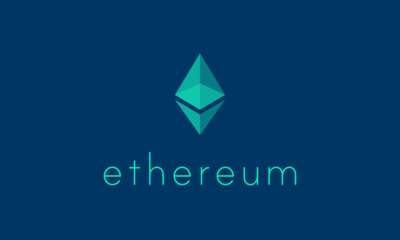Bitcoin, other cryptocurrencies and NFTS are more trusted than stocks to give investors better returns in 2022, reveals a global survey.
The poll taken by almost 6,000 individuals on LinkedIn – and tracked by more than 146,600 – since the beginning of the new year finds that 30% of respondents believe that ‘another cryptocurrency’ (other than Bitcoin) will yield the best results; 25% say Bitcoin and NFTs (non-fungible tokens); and 20% believe stocks will outperform the others.
Nigel Green, the founder and CEO of deVere Group, one of the world’s largest independent financial advisory, asset management and fintech organisations, who ran the survey on the business networking platform says the results were “surprising.”
Like the many others who were monitoring the poll as it gives an indication of investor sentiment for 2022, he says he was “taken aback” by the results.
“Stocks, which have always traditionally made up the bulk of successful investors’ portfolios, are falling out of favour it seems as a way to create and build wealth, with digital assets taking over.
“Also, it’s surprising that it’s believed by investors that ‘other’ cryptocurrencies – and not the headline-grabbing, dominant Bitcoin – will out-run other asset class this year in terms of returns.”
The deVere boss says there could be three key explanations for the findings.
“First, investors are predicting that the markets in 2022 will perform in a similar way to 2021. That’s to say that cryptocurrencies, even despite the slump in December, had a remarkable year.
“Bitcoin ended the year up almost 65%, meanwhile, the S&P500 – the benchmark index of the world’s largest economy – managed around 28%, and gold was down around 7%.”
“However, past performance is no guarantee of future returns, of course.”
He continues: “Second, rising prices as supply chain bottlenecks and a shortage of qualified workers continues to push inflation, which is a major concern for global investors as their spending power is being eroded.
“Bitcoin and other digital currencies are widely regarded as a shield against inflation mainly because of its limited supply, which is not influenced by its price.”
“And third, critically, investors are increasingly confident that digital currencies are the inevitable future of money. In our increasingly tech-driven, globalised world, it makes sense to hold digital, borderless, decentralised currencies and/or other digital assets, such as NFTs.
Nigel Green says that Bitcoin might have been pushed down the ranking below ‘another cryptocurrency’ due to growing investor insight into the crypto market.
“More and more people understand the intricacies of crypto,” he notes. “I think that when the respondents cited that they believe ‘another cryptocurrency’ would produce better results in 2022 over Bitcoin, they were probably thinking of its main rival, Ethereum.
“Ether has a higher level of real-use potential as Ethereum – the platform on which it is the native cryptocurrency – is the most in-demand development platform for smart contracts, thereby highlighting that network’s value not only as a platform for developers but as a worldwide financial utility.
He continues: “There’s also massive enthusiasm for the game-changing transition to ETH 2.0, which makes the Ethereum network considerably more scalable, sustainable and secure. These upgrades represent a major boost not just for Ethereum but for blockchain technology itself.”
The survey also suggests that NFTs are being increasingly perceived as a future-proof asset class. NFTs are digital collectibles that are encoded onto a blockchain – the same technology on which cryptocurrencies run – creating a unique digital watermark showing ownership and the digital rights to that collectible.
Over the last year many major global sports franchises, fashion brands and household-name artists and musicians have launched NFTS.
A long-time and high-profile tech advocate, Nigel Green reaffirms that portfolio diversification “remains the best way for an investor to seize opportunities and mitigate risks.”
He concludes: “This poll maybe just a snapshot of sentiment, but it does signal that investors are ready to embrace future-focused digital assets that they believe will continue to outperform other assets in 2022.”


 Forex3 weeks ago
Forex3 weeks ago
 Naira3 weeks ago
Naira3 weeks ago
 Billionaire Watch2 weeks ago
Billionaire Watch2 weeks ago


 Naira3 weeks ago
Naira3 weeks ago




 Naira2 weeks ago
Naira2 weeks ago




 Naira1 week ago
Naira1 week ago




 Naira4 weeks ago
Naira4 weeks ago
 Banking Sector4 weeks ago
Banking Sector4 weeks ago























